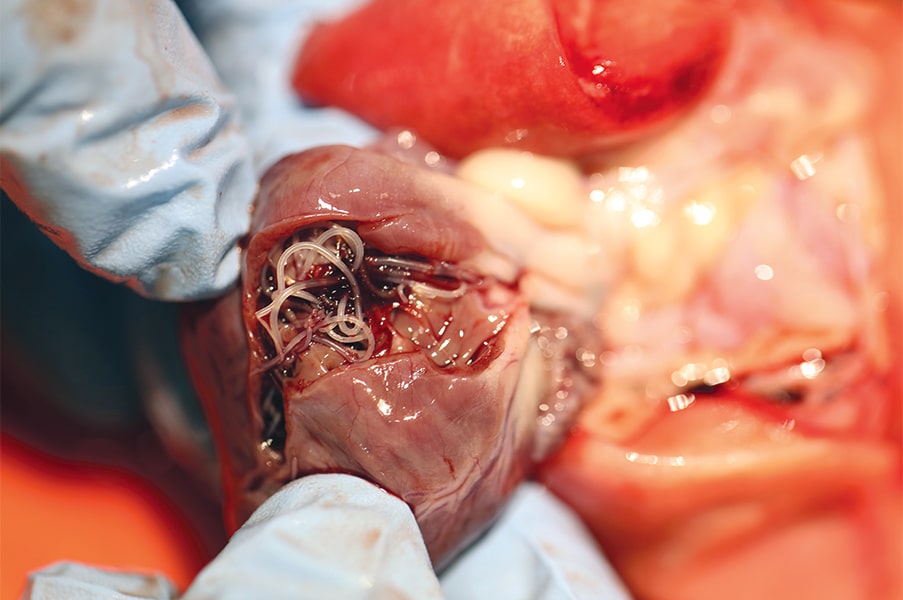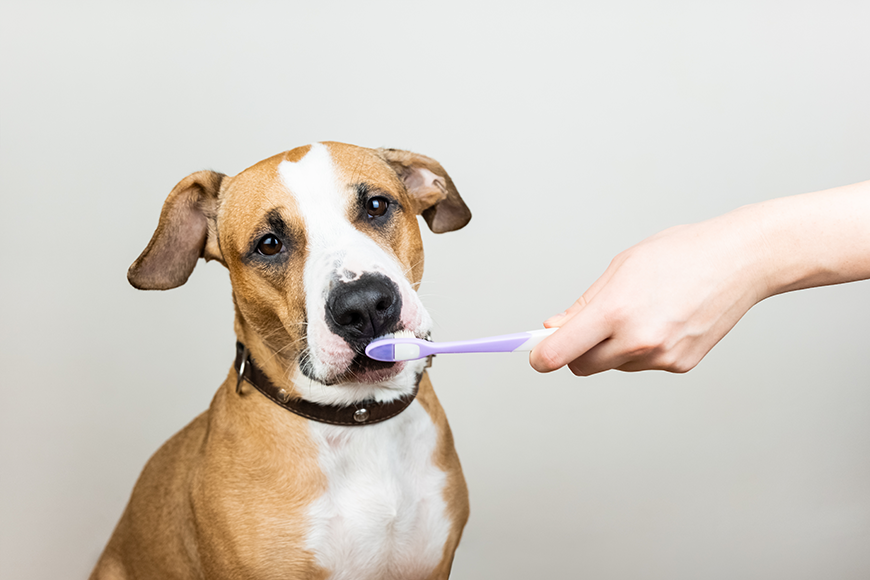No products in the cart.
Heartworm disease is a silent threat that can affect our furry companions – cats and dogs. While more commonly associated with dogs, heartworms can also wreak havoc on cats. This parasitic infection is transmitted through mosquito bites and can lead to serious health complications if left untreated. In this comprehensive guide, we will delve into the world of heartworms, exploring their effects on cats and dogs, the symptoms to watch out for, and the crucial role of prevention in ensuring the well-being of our beloved pets.
Heartworms represent a hidden danger that can affect the lives of both cats and dogs. These parasitic worms are transmitted through mosquito bites, and once they find their way into a host’s bloodstream, they can cause serious health complications. In dogs, heartworms can lead to heart and lung issues, while in cats, even a small number of immature worms can result in respiratory distress. Prevention is the key, as regular administration of preventive medications and mosquito control measures can help ensure that our furry friends remain safe from the threats posed by heartworm infection.
Heartworms in Cats and Dogs
Heartworms, a dangerous threat to the health of cats and dogs, are parasitic worms that can have devastating consequences if left unchecked. These microscopic invaders are transmitted through mosquito bites, making it crucial for pet owners to understand the risks and take preventative measures. In dogs, heartworms can grow into foot-long adult worms that inhabit the heart and blood vessels, causing symptoms like coughing, fatigue, and even heart failure. Similarly, while less common, heartworms in cats can lead to respiratory distress, vomiting, and weight loss. Regular veterinary care, routine screenings, and administering preventive medications are essential to protect our beloved companions from this silent menace.
-
Understanding Heartworms in Cats and Dogs
Heartworms, scientifically known as Dirofilaria immitis, are a type of parasitic roundworm that primarily reside in the heart and adjacent blood vessels of affected animals. These cunning invaders enter the host’s body through the bite of a mosquito, embarking on a complex life cycle that unfolds within the host’s circulatory system. From larvae to adulthood, heartworms undergo several intricate developmental stages while potentially wreaking havoc on their host’s health. The adult heartworms, astonishingly, can grow up to a foot in length, posing a severe threat to their unfortunate hosts’ cardiovascular and respiratory systems. As they establish residence within the heart and surrounding blood vessels, the delicate balance of the host’s physiological functions can be disrupted, leading to alarming symptoms and potential long-term damage.
-
Effects on Dogs
Dogs are the more commonly recognized hosts for heartworms, showcasing the significance of understanding and preventing this parasitic threat. These insidious parasites transmit when an infected mosquito pierces a dog’s skin, inadvertently introducing heartworm larvae into the bloodstream. As time progresses, these minuscule larvae embark on a transformative journey, evolving into formidable adult worms that establish their dwelling within the heart and adjacent blood vessels. This intricate process typically spans several months, during which the unsuspecting host remains vulnerable to the developing danger that lurks within. Symptoms of heartworm disease in dogs may include:
– Persistent cough
– Lethargy and fatigue
– Reduced appetite
– Weight loss
– Difficulty breathing
– Enlarged abdomen
– Swelling of the legs
If left untreated, heartworm disease can wreak havoc on a pet’s health, potentially resulting in severe consequences such as heart failure, extensive organ damage, and, tragically, even death. Recognizing the urgency of early intervention, maintaining a schedule of regular veterinary check-ups and comprehensive screenings becomes an indispensable aspect of responsible pet ownership. By detecting the presence of heartworms early, veterinarians can implement timely and effective treatment strategies, mitigating the progression of the disease and enhancing the chances of a positive outcome for our beloved companions.
-
Effects on Cats
While cats are considered atypical heartworm hosts, they are not entirely immune to the perils of this insidious parasitic infection. Unlike in dogs, where heartworms mature into adulthood, the story takes a different turn in feline companions. Typically, heartworms in cats do not follow the same path of maturation. Instead, even a relatively modest population of immature worms can exact a heavy toll on a cat’s health.
While not achieving full development, these juvenile worms still impose significant harm by finding their way into the heart and lungs. Diagnosing heartworm disease in cats can be challenging due to the subtle nature of the symptoms. However, regular veterinary care and testing can aid in early detection. This unique aspect of cat heartworm infection underscores the need for vigilance and preventive measures, even in seemingly unconventional hosts. Symptoms of heartworm disease in cats are often less obvious and may include:
– Coughing or gagging
– Difficulty breathing
– Vomiting
– Weight loss
– Lethargy
– Sudden collapse or death
-
Prevention: The Key to Protecting Your Pets
Preventing heartworm disease is far more effective and cost-efficient than treating it. Both dogs and cats can benefit from the regular administration of preventive medications prescribed by veterinarians. These medications eliminate the immature larvae before they can develop into adult worms. For dogs, monthly chewable or topical treatments are commonly recommended. For cats, preventive options are available in the form of topical solutions. Indoor living doesn’t guarantee protection, as mosquitoes can still find their way indoors. In addition to preventive medications, there are other steps you can take to reduce the risk of heartworm transmission:
– Minimize your pet’s mosquito exposure by using screens and insect repellents.
– Keep your pet’s environment clean and free of standing water where mosquitoes breed.
– Follow your veterinarian’s recommended schedule for heartworm testing and preventive treatments.
Conclusion
Heartworms pose a significant threat to the health and well-being of cats and dogs. While the effects and symptoms of heartworm disease differ between the two species, the importance of prevention remains constant. By being proactive in administering preventive medications, practicing mosquito control, and ensuring regular veterinary check-ups, you can safeguard your pets from the potential dangers of heartworm infection. Remember, a little prevention today can go a long way in providing your furry companions with a healthier and happier tomorrow.
Pet’s Mall and Pet Clinic
Pet’s Mall and Pet Clinic in Lahore is the best place for your pets. Dr. Sami is a fantastic vet there, and he has a super team and excellent equipment. If your pet needs help, this is the place to go. They have everything your pet might need and care about making it feel better. So, if your pet is sick or you need pet stuff, check out Pet’s Mall and Pet Clinic. Your pet will thank you!
CONTACT US:
34 Q Block, Johar Town, Shah Alam Road, Near Ayub Chowk, Lahore
0313-4343476
petsmallpk@gmail.com
Share :
Share on facebook
Share on twitter
Share on linkedin
Popular Post
How to choose a training
April 27, 2019
Top tips for caring for
April 27, 2019
Tips for keeping your cat
April 27, 2019
Archives
Tags
Animal hospital in Lahore Animal hospital Lahore Best pet grooming in Lahore Best Vets cat indoor entertainment tips Cloth dog's teeth caring tips Food Health How to choose a training reward for your dog New Pet Online Pet Shop Online Pet Store Pet Pet2 Pet Clinics Pet Hospital in Lahore Pet Hospitals Pet Store Shop Training Veterinary veterinary clinic in Lahore Veterinary Clinics Veterinary Doctor Veterinary Hospital Veterinary hospital in Lahore Vets in Lahore
Email for newsletter
Pet Supplies
At Pets Mall, we offer premium quality dog and cat food, pet supplies, and vaccination. Get everything you need for your pet!
Mobile Pet Clinic
If you pets need immediate veterinary’s treatment, give us a call and we will send a specialist vet to your home.
Contact us
- 34 Q Block, Johar Town, Shah Alam Road, Near Ayub Chowk , Lahore
- petsmallpk@gmail.com
- 0301-7475573 , 0313-4343476
COPYRIGHT © PetsMall.pk ALL RIGHTS RESERVED. | DEVELOPED BY DIGIKNOWN












